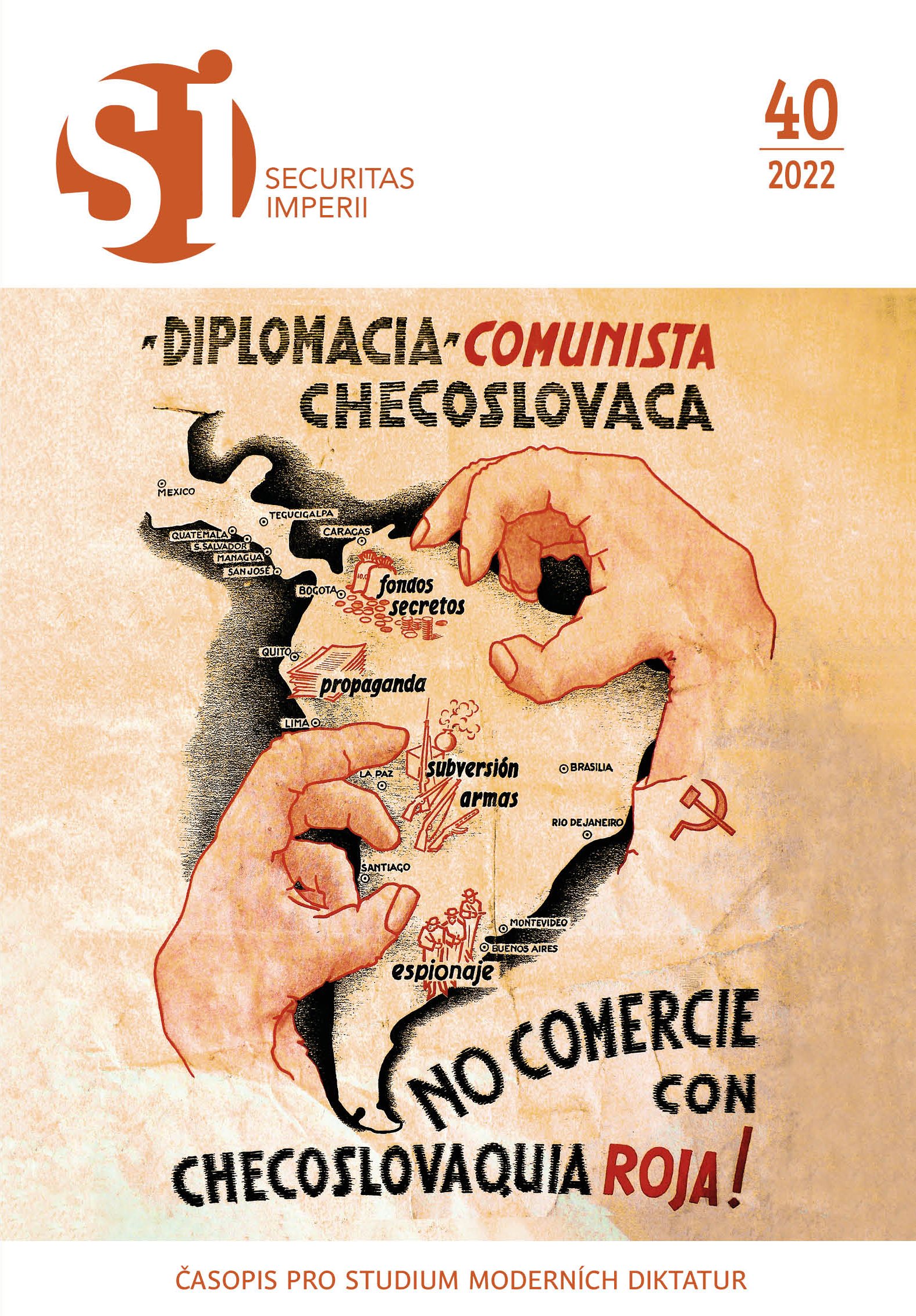Older issues here: https://www.ustrcr.cz/typ-publikace/securitas-imperii/

Securitas Imperii 40/2022
The recent international media attention focused on the activities of Czechoslovak Intelligence Service during the Cold War inspired us to dedicate an appropriate space to this topic in our journal. We addressed two historians who had so far published the results of their research on the international contacts of the State Security only abroad, so their texts may have escaped the attention of the domestic scholarly community. Michal Zourek has consistently dealt with Czechoslovakia's relations with the countries of Latin America and, among other, has also researched the work of the Czechoslovak Intelligence Service. The second of the authors, Jan...